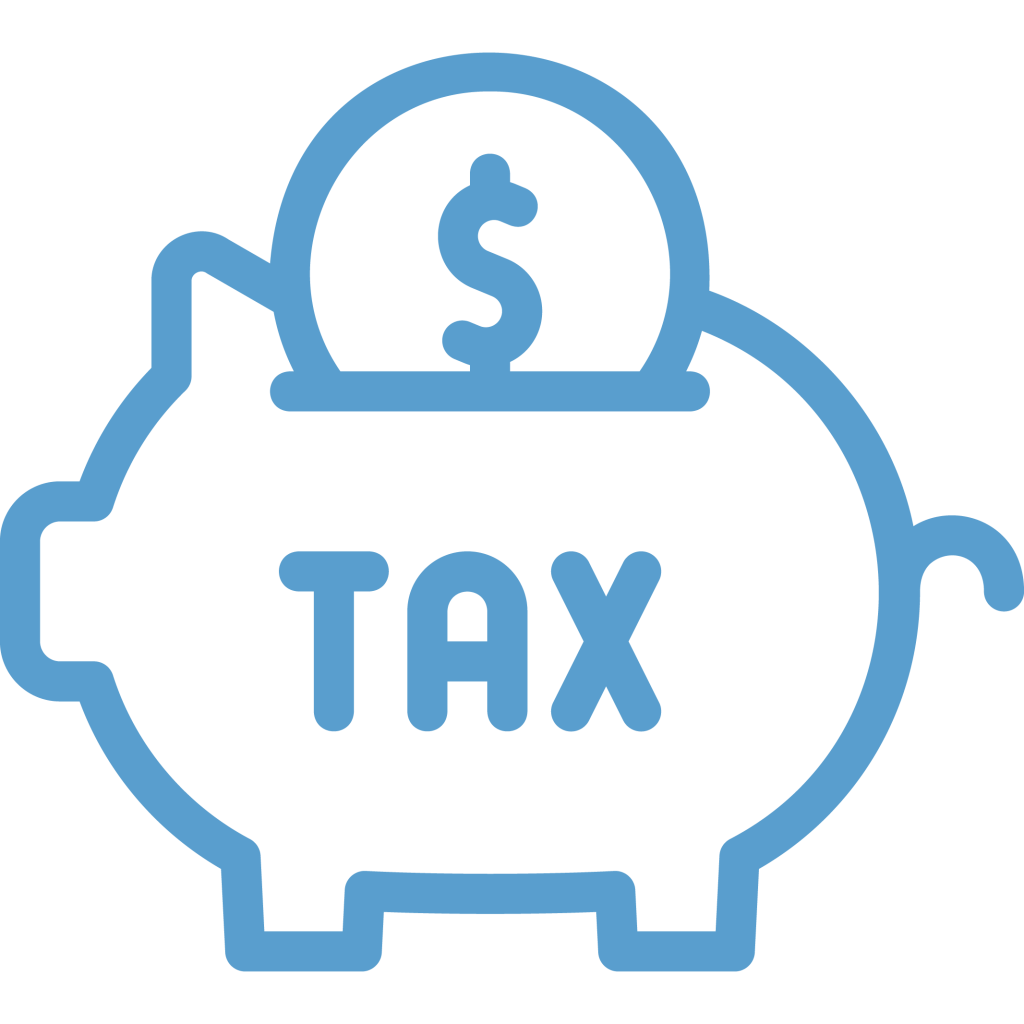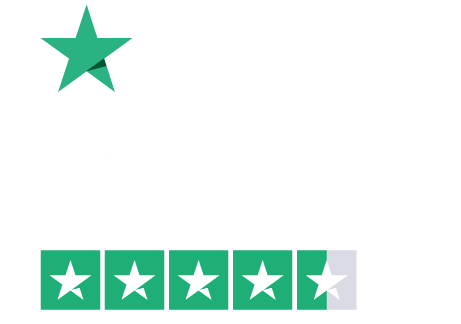Specialist Accountants for Pilots: Aviation Finance Experts
Over 10,000 commercial pilots in the UK trust dedicated tax specialists to safeguard their earnings and optimise relief. At Lanop, our aviation accounting service is tailored for all pilots, from rotorcraft to fixed wing. We guide you through airline pilot tax deductions, manage your pilot tax return and deliver clarity on accounting in aviation industry matters so your financial focus always remains airborne.

Comprehensive Accounting & Tax Services for Pilots
Flying as a pilot comes with complex financial demands, from irregular pay schedules and cross-jurisdiction regulations to costly training expenses and licensing fees. At Lanop, we offer fully tailored aviation accounting solutions built for the challenges of flightcrew. Our services do more than just number-crunching: we aim to maximize your tax efficiency, protect your income, and give you financial peace of mind at every altitude.
Stress-Free Compliance & Reporting

- You won’t have to worry about HMRC audits, missed deadlines, or paperwork backlog. Our team handles your pilot tax return, VAT filings (including Making Tax Digital for VAT pilot compliance), and HMRC reporting so you can stay focused on your career. As experienced aviation tax accountant professionals, we understand how to structure returns for those in the aviation sector and ensure your compliance is seamless.
Personalized Tax Strategy & Expense Optimization

- Every pilot’s financial situation is unique, your routes, equipment, training, and travel patterns all affect your taxes. We work with you to identify allowable pilot tax deductions, pilot training costs tax deductible, and travel, subscription, and maintenance claims. Through careful planning, we help reduce your liability and show you what pilots can claim on tax without risking penalties.
Maximized Savings & Long-Term Wealth Protection

- We don’t just aim to minimize your tax this year, we help you build a sound financial future. From advising on pilot trusts and inheritance tax to structuring your income across jurisdictions and investments, our focus is on long-term protection. With our help, pilots repeatedly see improved net income and clarity on how much do pilots make after taxes or how much tax do pilots pay.

What Accounting Services We Offer for Pilots
Our aviation accounting team provides full-spectrum support tailored to pilots. Whether you’re newly licensed or a veteran aviator, we cover everything from daily bookkeeping to advanced tax structuring, so your financial flight is always smooth.
We handle entity formation, registration, and structure your business to optimise your aviation accounting and tax position.
Monthly record keeping, reconciliation, and financial summaries managing your flights, allowances, and expenses.
Preparation and submission of year-end accounts, corporation tax returns, and full HMRC compliance.
Expert help filing your pilot tax return to ensure every valid deduction is claimed.
Support with VAT registration, quarterly returns, and Making Tax Digital for VAT pilot compliance.
Advice on pilot trusts and inheritance tax, estate planning, and wealth protection for your legacy.
Who We Support in Aviation
We work with a wide range of aviation professionals, whether you fly privately, commercially, or in specialty roles, offering tailored financial and tax services aligned with your specific needs in the aerospace world.
- Commercial Airline Pilots
- Helicopter & Private Pilots
- Cargo & Charter Operators
- Flight Instructors & Training Pilots
- Test & Ferry Pilots
- Corporate & Business Aviation


Tailored Accounting Solutions for Pilots’ Unique Revenue Streams
Revenue for pilots seldom fits into one neat category, your income may stem from base salary, per-diems, allowances, bonuses, charter flights, instructional fees, or contract work. Understanding and reconciling these varied sources demands more than basic bookkeeping: it requires specialist insight into aviation accounting and the nuances of pilot earnings.
At Lanop, we design a fully custom accounting strategy around you. Whether you fly domestically or internationally, instruct, charter, or operate across multiple jurisdictions, we break down complex streams so nothing is missed. We ensure all airline pilot tax deductions, pilot training costs tax deductible and cross-border allowances are accurately claimed, optimizing your net income.
This bespoke approach also adapts as your career evolves. As you take on new routes, upgrade ratings, or transition into charter, instruction or fleet roles, our team ensures your tax structure, accounting systems, and compliance grow with you, always keeping your finances efficient, compliant, and aligned with your aviation goals.
Why Pilots Need Specialist Accountants
Your income isn’t standard. You deal with:
- Irregular or seasonal flight pay
- Multiple income sources (base salary, per-diems, instruction, charter)
- Allowances or benefits HMRC may treat as taxable
- Cross-border / foreign income and dual tax residency
- Complex pilot expenses tax deductible rules
- Uncertainty around whether to remain personal, limited company, or use trust structures
We grasp the pressures of aviation careers and are here to help you manage your finances confidently, compliantly, and with clarity.


Elevating Pilot Finance to New Altitudes
Flying is your expertise. Financial structuring should be ours. Whether you're operating commercial services, offering flight instruction, hauling cargo, or ferrying aircraft, your revenue channels are diverse, and your accounting approach must be equally versatile. From per-diems and bonuses to training reimbursements and licensing income, every income source has tax and compliance implications. Our role is to translate complexity into clarity and opportunity.
At Lanop, we stay on top of all legislative changes, from HMRC updates and Making Tax Digital deadlines to evolving reliefs and cross-border tax rules. Whether you're interested in airline pilot tax deductions, setting up pilot trusts and inheritance tax plans, or structuring your income for dual taxation scenarios, we guide you with precision. We manage the challenges so you can focus on flying.
Your aviation career isn’t static, and neither should your financial strategy be. As you gain new ratings or shift into charter, instruction, or management roles, our accounting structures evolve with you. We factor in aircraft maintenance, training costs, route allowances, overseas income and more. The result: bespoke financial solutions that match your career trajectory, keep you compliant, and help protect your wealth for the long run.
Why Pilots Benefit from Aviation Accounting Specialists
- Deep expertise in aviation accounting and pilot-specific tax rules
- Understanding of pilot expenses tax deductible and training cost claims
- Capability to manage cross-border earnings and dual residency issues
- Insight into airline pilot tax deductions, per diems, and allowances
- Strategic guidance on pilot trusts and inheritance tax and long-term planning


Complex Revenue Streams Demand Specialist Insight
Pilots’ income rarely fits a simple mould. Between salary, per-diems, training fees, licensing reimbursements and cross-jurisdiction allowances, your financial reality is a mosaic of variable revenue sources. Generic accounting cannot fully address this complexity. At Lanop, we specialise in structuring your finances so every stream is understood, classified and optimized for tax and compliance.
We monitor evolving HMRC rules, particularly aviation accounting, Making Tax Digital, and industry allowances, so you can rest assured your claims, returns and submissions remain within the law. Whether it’s pilot tax deductions, pilot expenses tax deductible, or cross-border income, our insight ensures you claim what you’re entitled to, while avoiding costly errors.
As your career evolves, adding charter work, instruction roles, cross-country routes or fleet assignments, your accounting framework must evolve too. We adapt to your changing circumstances, managing training outlays, replacement equipment, route allowances and more. The result is a personalized financial strategy that grows with your career, safeguards your earnings, and gives you clarity in even the most intricate aviation tax landscapes.
EXCELLENTTrustindex verifies that the original source of the review is Google. We're a small company in business for 23 years. We've been with Lanop for over a year now. From the outset they listened carefully to our somewhat complex bookkeeping needs (we sell products and services with different tax codes); they've provided a tailored solution that they execute with precision and in a timely manner. We hired them to provide combined bookkeeping, payroll and accountancy service, and they're a dream to work with on all aspects. They are careful and conscientious, and never last minute. Excellent measured responses when I ring up with questions - always so friendly, too. The price is very reasonable, not least given the high standard of service and the peace of mind we have. Top drawer.Posted onTrustindex verifies that the original source of the review is Google. I'm in the early stages of a startup and got in touch with Lanop, who looked to be very knowledgeable in my niche. I booked a 30-minute consultation with Muhammad, who was great and understood all the challenges i'd be facing and what direction i need to go. I was very impressed with his advice, and i came away with confidence and reassurance that this is someone i need to be working with as i scale up.Posted onTrustindex verifies that the original source of the review is Google. The Free 30 mins call was exactly what I needed to understand my situation better and the team was really helpful in providing advise and recommending next step. I look forward to working with them long termPosted onTrustindex verifies that the original source of the review is Google. It has been an absolute pleasure working with Lanop. Excellent!Posted onTrustindex verifies that the original source of the review is Google. I reached out to Zaib with some business and visa compliance related questions. Zaib was extremely kind and efficient in sharing his knowledge to my specific circumnstance and beyond helpful with helping us understand how to set up our business and ensure we were being tax efficient. Thanks, Zaib and team.Posted onTrustindex verifies that the original source of the review is Google. I was so lost in the woods with taxes and accounts, and on top of that, I had a limited company I was eager to get off my hands. Lanop was fabulous from start to finish and got everything taken care of. I went from being a bundle of nerves about anything financial to feeling totally at ease. I never thought I'd see the day! Everything occurred in a timely manner and I was always updated on everything that was going on, which was lovely. I was also quoted really fairly for everything as well! Above all else, Lanop gave me incredible peace of mind. If you work with them, you'll certainly be in good hands.Posted onTrustindex verifies that the original source of the review is Google. Had a great meeting with Mohammad. Cleared up all questions we had surrounding “Gift with Reservation of Benefits”. Very calm and clear communicator. Thank you.Posted onTrustindex verifies that the original source of the review is Google. Very happy to recommend Lanop accountants at 389 Upper Richmond Road. They were very communicative, helpful and efficient.Posted onTrustindex verifies that the original source of the review is Google. I am a new owner to a company and they have really helped in supporting me in the startup of my businessPosted onTrustindex verifies that the original source of the review is Google. Excellent service, timely delivery, and response are a few words that describe Lanop tax advisors at best. I had seamless communication with Florentina, and Sohaib. They both accommodated me well and it was a hassle free experience overall. Quick resolution too! Highly recommend their services.
Our Identity
Integrity, honesty, and dedication are the core values at Lanop Business & Tax Advisors. Since launching our first Putney office in 2010, we’ve grown into a fully digital, UK‑based accounting and tax advisory firm that blends expert compliance with forward‑looking guidance and business strategy.
Our team of specialized chartered tax advisors and accountants delivers a full spectrum of services including tax planning, bookkeeping, VAT, payroll, and virtual finance director support all designed to help you manage your business more efficiently and confidently.
We believe accounting is more than numbers it’s about empowering your journey through modern finance. That means applying strategic insight, breaking down complex financial processes, and acting as your trusted partner not just submitting filings.
Put simply, Lanop Business & Tax Advisors is more than an accounting firm we are your strategic ally, dedicated to guiding your financial success with integrity, precision,

FAQ
Accountants for Pilots
What is HMRC pilot tax relief and how can I access it?
HMRC pilot tax relief lets pilots recover certain job-related costs (uniform cleaning, charts, tools, training). Employed pilots often use the Flat Rate Expenses allowance, while self-employed pilots make claims via Self Assessment. To access it, you’ll need receipts or records, and you submit claims through your tax return or HMRC channels.
What types of expenses can a pilot genuinely deduct?
You may be able to deduct costs such as uniform maintenance, safety equipment, navigation tools, licenses, training courses, and travel tied directly to flying duties. The key: each expense must be “wholly, exclusively and necessarily” for your work as a pilot, and you need clear documentation to support the claim.
Do commercial pilots pay income tax on overseas flights too?
Yes, for UK tax residents, income from overseas flights is generally taxable in the UK, although tax treaties may reduce double taxation. Even while flying internationally, your overall earnings, including work performed abroad, often fall under UK tax rules for residents, with reliefs or credits applied where treaties allow.
Can I use the Flat Rate Expenses (FRE) allowance as a pilot?
Yes, uniformed commercial pilots are eligible for the FRE allowance (currently £1,022) and an extra £110 for medical and training travel.
How do I decide between being self-employed or operating via a limited company?
It depends on your income level, risk, pension planning, investments, and tax planning. Limited companies may offer more flexibility and tax efficiency, but come with extra compliance obligations.
How do tax treaties influence where my pilot income is taxed?
Treaties often include special ‘international transport’ rules that allocate taxing rights. Even if you live abroad, some duties flown may still be taxable in the UK (or airline’s home country).
How much tax do pilots typically pay in the UK?
It depends on your bracket and deductions, but many pilots fall into higher rates (40% or 45%) after allowances, especially once overseas income, benefits and claims are accounted for.
Can I claim training and licencing costs as tax deductions?
Yes, training and licensing costs required for your job (refresher training, simulator, exams) can often be claimed as allowable expenses, with proper records.
Do pilots ever qualify as non-resident for tax purposes?
Some pilots who relocate and sever UK ties might qualify as non-resident, potentially reducing UK tax liability, though many rules (residence tests, ties, deemed days) still apply.
Will HMRC accept digital records for pilot expenses?
Yes, as long as they are accurate, time-stamped, backed by receipts, and stored in compliant software (especially under Making Tax Digital (MTD) rules).
Can I claim tax relief on per diems or allowances?
Yes, allowances that cover meals, lodging, and travel (if not reimbursed) can sometimes be claimed; however the rules are intricate and need careful structuring.
What happens if I don’t keep good expense records as a pilot?
Without strong records, HMRC may disallow your claims or challenge your tax return, leading to lost reliefs or higher liability. Always maintain receipts, logs, and classification.
Is pilot salary ever tax free?
No, pilot income is not automatically tax free. Only specific reliefs, allowances or treaty adjustments may reduce taxable income, but it is rarely entirely exempt.
How far back can I claim pilot expense refunds?
In general, you can claim for up to four prior tax years if you discover unclaimed expenses, subject to HMRC rules and evidence.
What is HMRC’s Flat Rate for pilots vs actual expense claims?
The FRE (Flat Rate Expenses) provides a fixed allowance; actual expense claims let you deduct the precise cost of your work-related outlays. The better option depends on your costs vs FRE.
Here's some other accountancy services we offer...
Get in touch
Monday to Friday 9am – 6pm


























